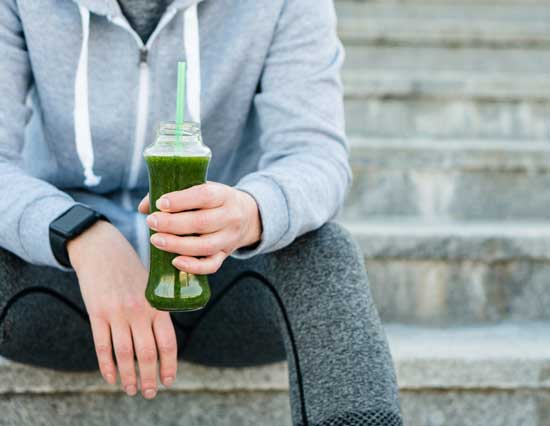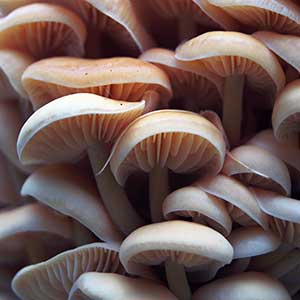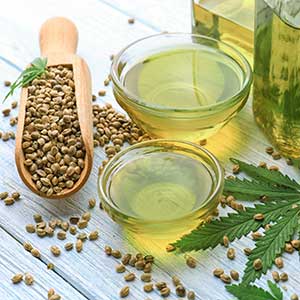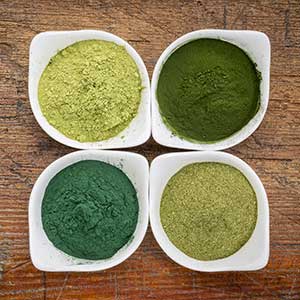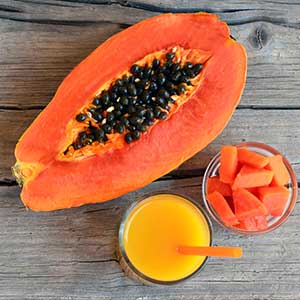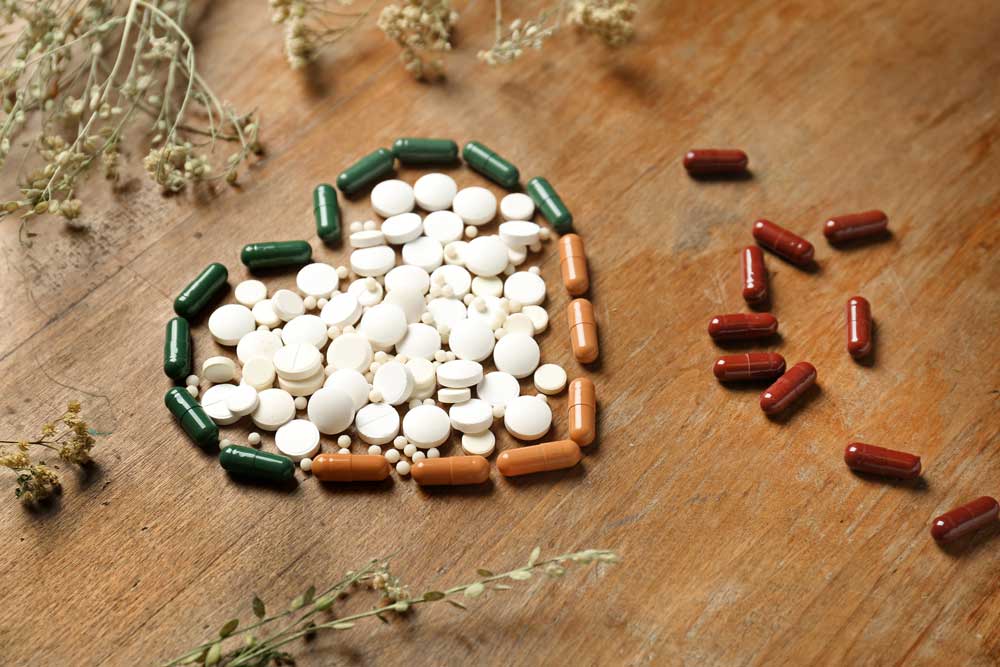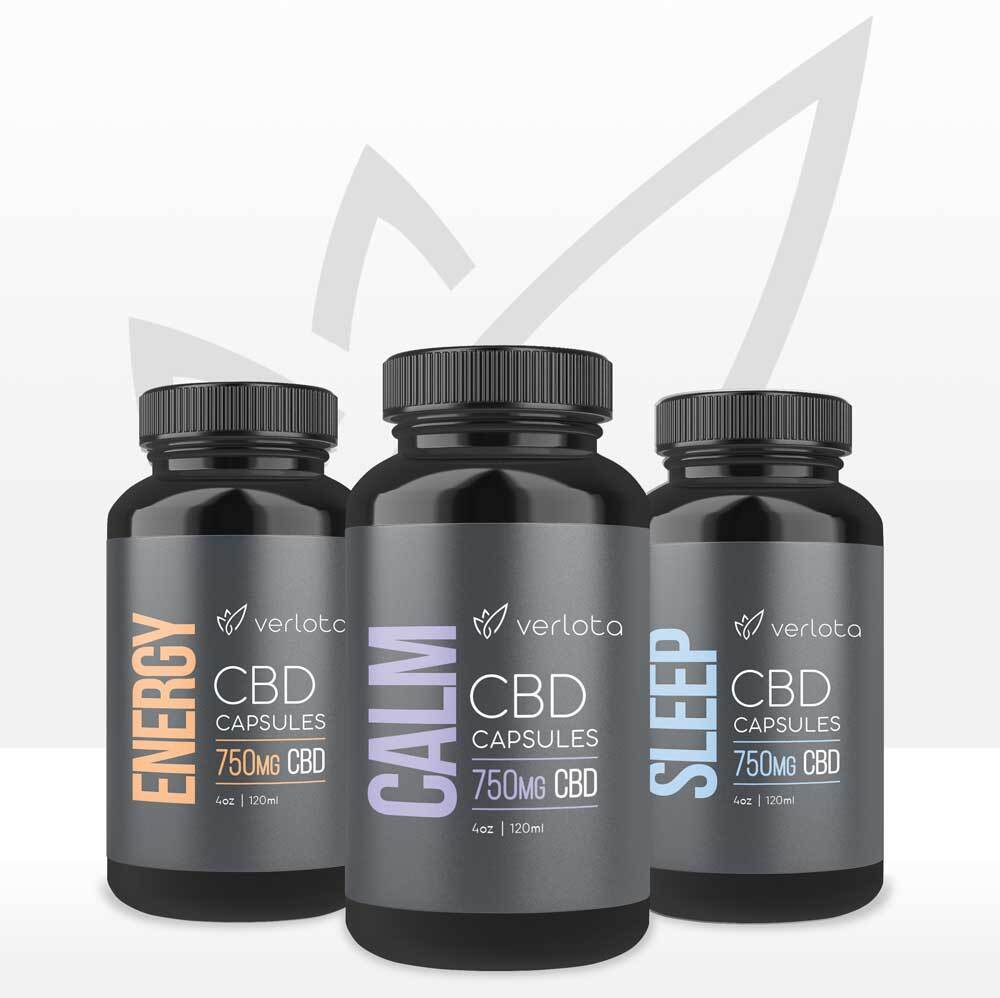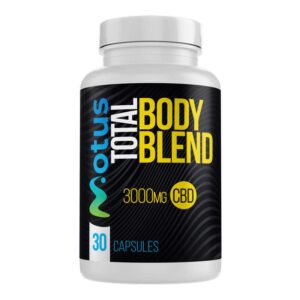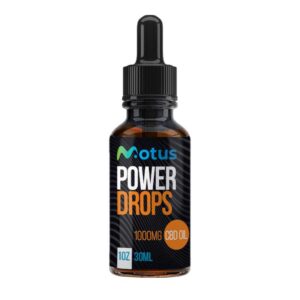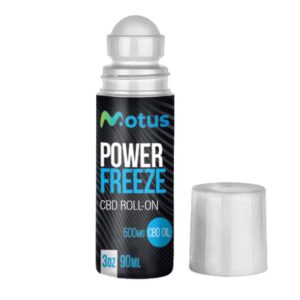A growing number of people are adopting more natural fitness practices, and these trends are also dominating health & fitness products. Plant-based diets, supplements and remedies are quickly becoming the top choices for clean, healthy & sustainable living… and for good reason! Plants are powerful and they can provide just about everything we need. Plant proteins like hemp, pea and soy have steadily replaced a lot of whey powder products over the last decade, and you can find superfoods and micro-greens added to many protein products. Plant-based products have begun to creep into every aisle of your local health & fitness store as the benefits of products like hemp oil or CBD oil become more well known.
There’s a revolution taking root in the vitamin and food departments when it comes to plant-based products, but there’s also a surge in plant-based medicines. CBD hemp oil for ingestion and topical application has become one of the more popular items in many peoples’ shopping carts, both online and in-stores. Hemp extract oils such as hemp seed oil or CBD-rich hemp oil are also being included in a number of products today: from nutritional shakes to protein bars, to health & fitness supplements like pre- and post-workouts.
If there’s something you need, there’s probably a plant-based alternative already on the market. Whether you’re a ‘beleafer’ in the validity of plant-based alternative products or not, the science is steadily showing that many people can benefit greatly from a reduction in animal-derived products and an increase in their intake of fruits, vegetables and a variety of plant-based supplements. Allergies to products containing dairy, gastrointestinal issues related to ingesting too much animal protein, and the overarching problem of toxicity in many conventional foods today has led many health & fitness conscious individuals to seek out the clean, natural and nourishing power of plants.
Are all CBD oils the same? Which is better: hemp CBD oil or hemp seed oil? What is the difference between hemp oil and cannabis oil? It’s time to eat your vegetables, blend up your daily servings of fruit and take your hemp CBD because we’re going to adjust your focus to the world of plant-based living and show you just how beneficial it can be for your health & fitness.
IS HEMP OIL AND CANNABIS OIL THE SAME?
Before we get into plant-based diets and all the nutritious power of plants, let’s focus in on how they can heal us and help us achieve our fitness goals. Plant-based medicine is one of the oldest traditions on the planet – since our earliest days, humans have relied on what nature provides to soothe aches, cure diseases, and support our health & fitness in order to not just survive, but thrive. There is archaeology, in cooperation with botany and the natural sciences, has discovered many examples of ancient peoples using plants in a remedial capacity. Certain plants were revered for their spiritual significance, such as cannabis and psilocybin, but they also have helped to shape our biochemistry over the centuries. We almost unwittingly improved upon our mental and physical health by consuming certain plants like these, and some studies are even delving into the possibilities of psilocybin having impacted our actual evolution by ways of neurogenesis (the creation and mapping of new pathways in the brain).
If you don’t already subscribe to the cultural, medical and psychological importance of plants, what’s holding you back? We probably understand why you’ve never invested much time or energy into the efficacy of plant-based medicine: there are cultural and societal stigmas swirling around plants like cannabis, hemp and mushrooms like a kicked-up nest of hornets. In ancient times, healing plants and their remedial products were simply a part of everyday life; today, we have modern medicine, a greater scientific understanding, and endless amounts of data to rely on for matters of health. It may not be apparent why we have strayed away from natural medicines over the years, but the usual suspects are lack of research data, lack of support for health professionals, and a general negative attitude towards any changes to the current pharmaceutical medical system.
As many people all over the world are rediscovering plant-based medicines that were once prominent in centuries past, the medical community is playing catch-up with analytical testing and applying their findings to this growing industry. One plant-based remedy that has taken the worlds of health & fitness by storm is Hemp CBD. Recently legalized by the Federal US Gov’t with the passing of the Farm Bill (December 2018), CBD derived from hemp is now accessible to all Americans where before only a small number used, or even knew about CBD from cannabis or its close-cousin hemp. Cannabidiol (CBD) has been used by millions of people for reducing their pain & inflammation and treating a variety of ailments such as Parkinson’s, Epilepsy, Insomnia, Depression and PTSD. CBD is so widely used that it has also been unrestricted by WADA (World Anti Doping Agency), therefore approved for professional athletes to use at all levels of competition.
Although CBD is now approved for both fitness and health professionals, it’s the fact that everybody – young, old, fit, infirm – can wield it as a powerful, natural defense against sickness and injury. Cannabidiol has gained a lot of traction in the United States this past year for its ability to combat soreness, reduce swelling, enhance energy & focus, improve rest & recovery, and soothe a long list of conditions like nausea, stress or anxiety. If it seems like CBD is a bit of a ‘cure-all’, you’re not wrong in thinking so; Cannabidiol derived from hemp is being applied across the spectrums of health, from providing neurological to cardiovascular benefits, gastrointestinal support to muscle development.
WHAT IS HEMP EXTRACT OIL GOOD FOR?
Similar to other plant-based medicines, CBD needs to have a lot more research conducted before medical professionals will get behind it, nonetheless it is quickly replacing a lot of products in people’s medicine cabinet.It goes without saying that because CBD is so multi-faceted and capable of improving so many areas of our health that it has also been under scrutiny from media & competitors alike. Any plant-based product, whether it’s plant protein powder, superfoods or Cannabidiol undergoes a lot of pressure from conventional sources.
The burden of “proving what it’s doing, how, and why” is an unavoidable sentiment when it comes to health & fitness products. CBD has largely been promoted through word-of-mouth and personal referrals rather than TV, radio or print advertising. Social media and online advertisements are definitely a more affluent way to communicate the benefits of CBD, but some of the biggest social media channels like Facebook have shown a disdain for Cannabidiol promotions thus far.
As media companies and the medical community at-large come around to the idea of CBD in the public sphere, there are still millions of Americans who are trying it for their aches & pains, sleep and mood balancing each and every day. Hemp CBD has been shown to have no psychoactive effects, products are usually THC-free (in order to be considered a legal CBD product, THC must be < 0.3%) and there are no risks of long-term use. What kinds of feelings do you experience when you take CBD? There isn’t much to notice, you don’t feel a “high” like with THC, but some people have communicated an “enhanced focus” and sharpness of mind when they consume CBD.
The other “feelings” you get when you use CBD are the beneficial ones: pain-free, energetic, balanced mood, relaxation and clarity of mind. Plant-based remedies like hemp CBD can be ingested as an oil or capsules, applied topically as a cream or gel, or mixed in with your favorite food or drink – like a protein shake, for instance.
So, CBD hemp oil is one of the newest, most popular plant-based medicines on the market right now… but what else is there? There are lots of naturopathic remedies used by people all over the world, thousands upon thousands of products in fact, so pinpointing them all would be one heck of an undertaking for this article. For the purposes of this blog, we’ll hone in on a few “diamonds in the rough” that you may or may not have encountered. In our experience, some of the most effective plant-based supplements are also considered to be “superfoods”: Mushrooms (beneficial fungi), Hemp Seeds/Oil, Seaweeds & Algae (Kelp, Spirulina, Chlorella), Plant Enzymes (Amylase, Papain), and Herbs (echinacea, milk thistle, gingko biloba).
Beneficial fungi, otherwise known as medicinal mushrooms, are some of the most fascinating plant-based remedies on the planet. Maybe the term “plant-based” isn’t entirely accurate for mushrooms – there’s some debate on whether they’re more like an animal, a plant, or some extraterrestrial cellular-intelligent organism… but that’s not for us to decide in this article. For now we’ll stick with the notion that mushrooms are plants, and like many other plant remedies they are absolutely chalk-full of beneficial nutrients and compounds. Fungi species like Chaga, Reishi, Cordyceps, Lion’s Mane and Turkey Tail are so capable of affecting positive changes on our health that anything else almost seems superfluous. These mushrooms, among many thousands of other species, have been consumed for: antioxidants, immunity boosting, disease suppression, tissue support, and brain health, just to name a few of the big ones. Beneficial fungi are typically adaptogens, meaning they assist our bodies and brains in optimizing how they work, or help them to boost production so-to-speak like with Cordyceps.
Cordyceps are typically taken for their energy & focus enhancing factors, but where this type of fungi is different from caffeine energy is that the mushrooms don’t provide a stimulant, they actually imbue our energy producing cells with a boost, therefore increasing our mental and physical energy. Lion’s Mane similarly empowers our brains to boost activity, and there’s some studies that have shown this fungi’s ability to actually help our brains create new pathways in our neural networks (neurogenesis, Paul Stamets – 2017). There’s hundreds of more medical benefits to taking mushrooms, so in order to understand them all we recommend you get out to your local natural health food store and start including mushrooms in your daily routine – the billions of years of natural research that these organisms have undertaken is just a few capsules or sprays away.
DIFFERENCES BETWEEN HEMP OIL AND HEMP SEED OIL
Hemp seeds and hemp seed oil are usually a breakfast favorite – seeds in your oatmeal or on top of cereal, oil on toast with avocado… yum! The reason we crave these hemp products so much (just like we rely on CBD) is the availability of their omegas 3-6-9. Hemp seeds and the oil produced from pressing them have a potent omega-fatty acids profile, including the big three we’re after: 3, 6, and 9. Hemp seeds or ‘hemp hearts’ are also a source for protein, which is always on people’s minds when they consider plant-based diets. In fact, protein is not that difficult to obtain from plants, but we’ll get into that a bit later on when we discuss plant-based diets.
There are a lot of seaweeds and algae in the sea, but some of the most jam-packed micronutrient plants on the planet are spirulina, chlorella, and the many species of kelp. These seaborne plants are particularly popular as sources of iron, antioxidants, iodine, potassium and a bevvy of trace minerals. Waterborne plants, like mushrooms, have evolved over many millions of years and are experts at absorbing the nutrients from the oceans, lakes and rivers in which they reside, and the same can be said for algae. There’s much to be said about the health benefits of taking kelp and algae; your brain, skin, organs and cardiovascular system can all benefit from a healthy dose of these supergreens.
All these benefits, and we haven’t even touched on one of the most prevalent uses for kelp & algae: purification. Toxic substances and heavy metals are an unfortunate symptom of much of our foods and drinks, so if you can’t avoid them without starving yourself how can you purify your body? Kelp specifically is known to contain algin, a compound that is very efficient at binding with heavy metals, allowing the body to expel them as waste instead of growing sick as the build up of these and other toxins occurs. Many of us already understand that some of the most healing plants are actually underwater, but if you haven’t tried kelp or algae products before, we sincerely hope that you do.
Last, but definitely not least in terms of healing capabilities, are herbs. Herbal medicines basically formed the basis for all naturopathic practices since the earliest days of humankind – witch doctors, shamans, and actual witches were told to have “special powers” of healing or inflicting terrible curses, when in fact most of this folklore stems from herbal concoctions and a knowledge of plant-based remedies (or poisons, when it came to the “curses”).
Plants like echinacea, holy basil, ginseng, gingko biloba have been used for centuries to heal, to boost immunity, and to empower a person’s body to take on the endless injuries and illnesses that life throws our way. Herbal medicines are often just as effective as pharmaceuticals, but the time frame of effects is an obvious reason why people more commonly rely on medications. Pharmaceuticals are often fast acting, but usually only deal with the symptoms of an ailment, whereas herbal remedies can take longer to cure or reduce symptoms, but their methodology primarily consists of boosting the body’s ability to overcome the health problem. Basically, short term relief cannot be beat by pharmaceuticals but if you are willing to invest in your long term health then herbal medicines can be just as effective, with a little patience
HEMP OIL VS CBD OIL: NUTRITION
We’ve looked at the plants that help us heal, but now let’s shift our focus to a healthy diet of plants, plants and more plants. We’ve all heard it from our parents – Eat your vegetables! And you’ll grow big and strong – and as it turns out, they weren’t exaggerating (for once). Plant-based diets have taken hold of the world’s attention like a 500-lbs gorilla, and like a plant-powered, muscly ape behemoth plant-based diets are thrashing the old stigmas and stereotypes about animal-free nutrition and showing the doubters just how powerful plants can be. World renowned strongmen like Patrik Baboumian and Olympic weightlifter Kendrick Farris are both shattering records and expectations with their commitments to vegan lifestyles.
Brands like Vega are also leading the charge towards vegan diets and clean, cruelty-free health & fitness supplementation. With all the plant-based proteins now available in the ultra-competitive and conservative protein powder industry – such as rice, hemp, pea and many others – it’s almost more likely for consumers to ask “Why should I stick to Whey when there’s so many other, healthier options?”. Dairy has had its fair share of controversy of the past decade or more, including revelations about the terrible conditions that dairy cows and their offspring live in as well as some recent studies showing that numerous health issues have arisen from the absolute saturation of dairy into thousands of everyday products.
Cheese, milk, yogurt and ice cream are in the top 10 for many peoples’ favorite foods, but they’re not exactly great for you, especially when you consider how much of these food items people consume on a daily basis. For all these dairy products there are a multitude of non-dairy alternatives – cashew “cheeze”, almond “milk”, coconut “yogurt” and soy ice “cream”, just to name a few of the typical sellers. Although the costs of these dairy substitutes are usually on the higher end, a lot of people who experience lactose intolerance are making the switch to plant-based, non-dairy products and finding that their health has improved. Another contingency of people have realized how bizarre and awful it is to consume a baby cow’s growth fluid, and so they’re relying on plants for a significant source of their calcium, protein and probiotics instead. This is obviously a very politically-charged debate for many people, especially under the recent marketing pressures from “big dairy” to consume more and more milk products, but nevertheless many health professionals and fitness-conscious people are saying “no more moo!” but saying yes to the versatile, nutritional and delicious world of plant-based products.
Not all foods are the same, and not all CBD oils are the same either. Hemp extract vs CBD oil isn’t necessarily the thing to focus on, it’s about taking advantage of each kind of hemp-derived product for its unique profile of health benefits.
WHICH IS BETTER: CBD OIL OR HEMP OIL?
Plants and people have a lot more in common than just sharing this space we call Earth – there’s so much synergy and symbiosis between plants and human health that it would be irresponsible of our species to ignore these facts and to continue doing things the way they’ve been for centuries. Plant-based diets, medicine and lifestyles are on the rise across the globe, and like the dawn of a new era there’s so much excitement just around the corner. What will we find out next? How will we continue to reshape our beliefs about health, fitness and nutrition? Will plants become a dominant force in most peoples’ lives? The possibilities are endless, and like a good CBD product or Vegan cookbook all we have to do is trust in nature and give it a try.
Plants and people have a lot more in common than just sharing this space we call Earth – there’s so much synergy and symbiosis between plants and human health that it would be irresponsible of our species to ignore these facts and to continue doing things the way they’ve been for centuries. Plant-based diets, medicine and lifestyles are on the rise across the globe, and like the dawn of a new era there’s so much excitement just around the corner. What will we find out next? How will we continue to reshape our beliefs about health, fitness and nutrition? Will plants become a dominant force in most peoples’ lives? The possibilities are endless, and like a good CBD product or Vegan cookbook all we have to do is trust in nature and give it a try.
Hemp CBD oil is a very diverse product: it can be taken under the tongue to be absorbed sublingually; it can be applied topically and rubbed onto sore or inflamed areas; and it can be added to food and drink to be digested. Is hemp oil CBD? Not always, but hemp extract oils often contain CBD-rich hemp oil extracts because they are fantastic for athletes due to their versatility. Both hemp oils vs CBD oils can be taken for an energy boost, to enhance mental focus, to improve sleep the night before a big performance, to soothe aching muscles and to reduce swelling/inflammation. One of the main reasons hemp oil or CBD oil are so popular is because they usually contain beneficial omegas-3-6-9. Does hemp extract oil contain CBD? Typically, yes, but it naturally has a lot of other synergistic effects even without cannabidiol, such as its omega fatty acids contents.
Why choose hemp oil or CBD oil? That’s easy: there’s so many ways it can be effective for your health & fitness, it’s more difficult to think of ways that it can’t be beneficial. CBD hemp oil is often the first product type that newbies try, and for many of those first-timers it remains the product of choice for as long as they rely on CBD. Taking Cannabidiol under the tongue, adding it to food or drinks, rubbing it onto your skin, even putting it in cosmetic products like skin creams or shampoos, you name it and there’s probably a way to include CBD Oil. For these reasons, CBD Oil provides some of the best bang-for-your-buck, and it’s also one of the easiest products to control your dose with (a few drops, a few vials, etc). Hemp CBD Oil comes in many concentrations, but again we recommend starting at the low end (avg. 250 mg – 2000 mg per 30 ml bottle) and beginning on a slow dose (suggested use, per manufacturer).
FAQ’s
Which is better: Hemp oil or CBD oil?
Hemp extract oil and CBD hemp oil can be sourced from similar plant materials (hemp seeds, hemp flowers, hemp leaves, etc) but the main difference between them is the presence (or lack thereof) of cannabinoids like Cannabidiol (CBD). Hemp extract oil is often derived from hemp seeds and does not typically contain active compounds like CBD or THC. On the other hand, CBD-rich hemp oil is derived from hemp flowers or whole-plant materials, including CBD phytocannabinoid contents as its main ingredient. Hemp extract vs CBD oil also differ in that hemp seed oil is mostly consumed as a nutritional supplement whereas CBD-rich hemp oil is ingested for certain medical benefits (less pain, inflammation, nervousness, better sleep, etc).
Is hemp seed oil good or bad for you?
Hemp seed oil is known to have many nutritional & medical benefits for both your short- and long-term health. Hemp extract oil is very rich in omega fatty acids – specifically, omegas 3-6-9 – which have a number of positive influences on mental & physical health. Hemp seed oil is also included in a lot of topical products that fight skin irritation, such as with eczema, acne or sunburns.
What are the negative side effects of hemp oil?
There aren’t many side effects associated with hemp oil or CBD-rich hemp oils, but in some cases ingesting too much can lead to some minor discomforts, such as: bloating, nausea, diarrhea, dry mouth and lethargy.
Does hemp seed oil have cannabinoids in it?
Hemp seed oil does not contain active compounds – such as terpenes, phytocannabinoids – like THC, CBD, CBN, CBG or others. This is because these phytocompounds are produced by the flowers of hemp or cannabis plants, whereas the seeds do not contain any cannabinoids in their pre-vegetation/propagation stage.
Is Hemp oil the same as CBD oil?
Hemp oil and CBD oil are not the same substance. For starters, Hemp seed oil is derived from the seeds of the hemp plant and contains no active phytocompounds like CBD or THC. CBD oil, on the other hand, is sourced from flowering plant materials, and therefore contains distinct profiles of terpenes and cannabinoids. CBD can be extracted in its isolated form (free of other phytocannabinoids), or as part of a full-spectrum CBD-rich oil product (including terpenes & cannabinoids resident in the plant). The main difference between hemp CBD oil and hemp seed oil is that hemp oil is typically sold as a nutritional supplement whereas CBD oil is popular as a health & wellness supplement.

